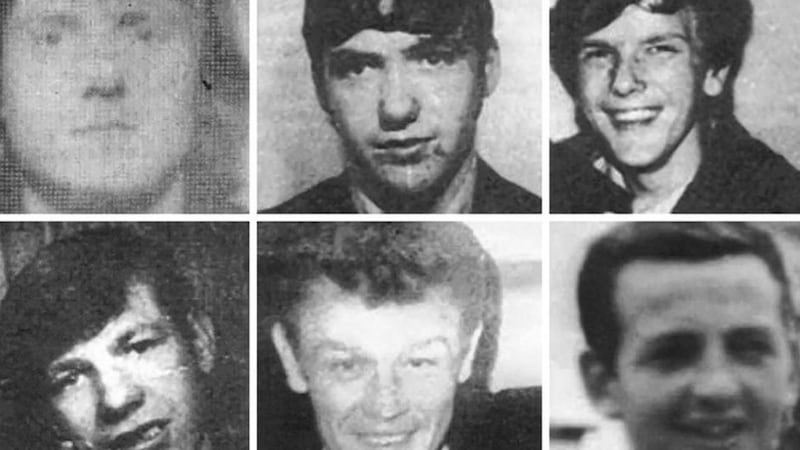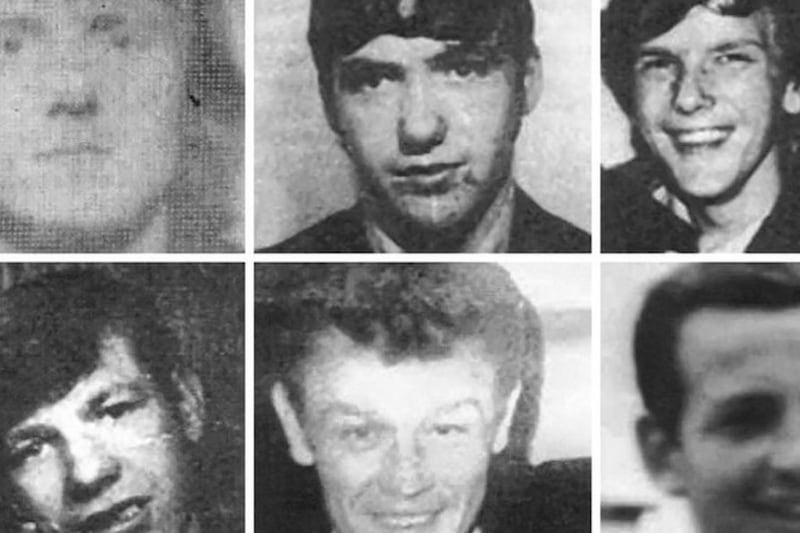POTENTIAL suspects may be dead before the alleged British Army killing of six Catholic men in north Belfast nearly 50 years ago is allocated for police investigation, the Court of Appeal heard.
Lawyers for the sister of one victim claimed perpetrators could avoid justice because the shootings are in a queue with more than 1,000 other Troubles-era deaths to be reviewed by a team of detectives.
Rosaleen Beatty is challenging the Director of Public Prosecutions for declining to direct the PSNI to carry out an investigation.
Her brother, Ambrose Hardy, was among the men, known as the New Lodge Six, killed in two separate shooting incidents in February 1973.
James McCann and James Sloan, both 19, were shot by a gunman firing from the back seat of a car as they stood outside a bar at the junction of the New Lodge Road and Antrim Road.
Later that night soldiers are believed to have opened fire from the top of nearby flats, killing Anthony Campbell (19), Brendan Maguire (32) and John Loughran.
Mr Hardy (24) was shot in the head when he emerged from the bar waving a white cloth, according to eyewitnesses. At the time the Army stated they were all IRA gunmen - a claim disputed by at least some of the bereaved families.
No weapons were recovered and there is no evidence that any were armed.
In 2018 former Attorney General John Larkin QC expressed an opinion that there had been no adequate criminal investigation and referred the case to the DPP to consider using powers under the Justice (NI) Act 2002 to compel a fresh police probe.
But in February 2020, the DPP declined to order such inquiries as the PSNI's Legacy Investigation Branch (LIB) was already examining the case.
Ms Beatty is appealing a High Court judge's decision to dismiss her bid to judicially review the director.
With the LIB's caseload around 1,122 deaths, her barrister claimed some could be decades away from investigation.
Hugh Southey QC told the Court of Appeal: "In cases like this, that date back 50 years, that may mean there's no realistic prospect of a prosecution."
It was contended that a case sequencing model being used by the LIB for the backlog may not reach an effective outcome.
Tony McGleenan QC, representing the Director and Chief Constable in related proceedings, responded by stressing the scale and capacity of the LIB's work.
Reserving judgment in the appeal, Lady Chief Justice Dame Siobhan Keegan pledged to give a decision as soon as possible.



